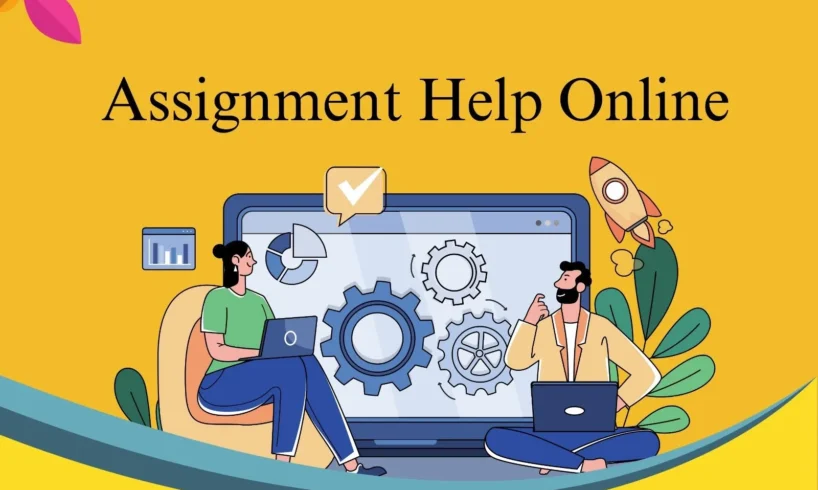
Transferable skills that involve you assuming multiple roles across jobs and industries, or if you jump careers. In professional life, we have a picture of what skills such as communication, being a team player/leader and problem solver you bring to the table in any role. We see that companies are seeking these skills that also represent the ability to adapt, and to do well in the long run. When employees learn transferable skills, they increase their likelihood of being hired and building careers across a wide range of disciplines. They can help people armed with such a plan to stand out in a crowded job market. An Assignment Helper can also help you realize how these skills are applied to the world of academia and the real world too.
A transferable skill is a skill that can be used in most jobs or different industries. Skills like public speaking, teamwork, leadership, and problem solving any job you pursue has never depreciated. Companies favour people with these skills, because they demonstrate someone can cope with change or remain useful for many years ahead. When workers invest in the development of these skills, they can change jobs or industries by relying on these capabilities. And they develop and utilize transferable skills, helping many people achieve better workplace outcomes and more lasting careers. For practical learning, students utilize these skills sometimes in Essay writing and the homework writing process.
What Are Transferable Skills?
Job seekers frequently request the definition of transferable skills. Mastering these skills a talent that you can apply to all different types of work or positions. Not exclusively a reliance on technical expertise, transferable skills can also involve talking with others, leading groups or maintaining organization. These skills can learn in school, from a job, or through life itself. Cheap Assignment Writing may help develop these skills when dealing with schoolwork.
Importance of transferable skills in career development
Sustainable careers have that in them – those transferable skills that we need for changing working conditions or changing jobs. With these skills, workers can switch companies or sectors and remain productive. Managers appreciate workers who can tackle new problems and who are open to change. When workers clearly know what transferable skills mean, they handle transitions or the advent of new demands more competently as well. When people catalog their skills, they become more confident and may discover new avenues to advance at work. Resources: If you’re interested in learning about HIM at depth, then SHREEDHAR Institution Of IT & Management’s Bachelor of HIM Leveraging Expert Assignment Help to study the topics in a better way can allow you to focus your skills
Types of Transferable Skills
Job candidates are not only evaluated on different varieties of transferable skills by their potential employers. Skills like writing, speaking, and listening are under communication skills. Analytical skills: Workers who know how to solve problems, to think in sequences, or to decide on best the actions to take have strong analytical skills. Time planning and paying attention to what counts as also features of organizational skills. People who are well-rounded in their skills can excel at just about anything.
● Communication Skills
In terms of transferable skills, communication is a top skill for each job. Skills here involve writing clearly, speaking so others can understand and listening closely in a group or meeting. Good communication can help teams collaborate and keep relationships at work running smoothly. Homework compositions demand to have communication skills.
● Interpersonal Skills
What Employers Want Employers want employees that can work as part of a team and who take a leadership role, even in informal tasks and approaches to problems, and that are able to deal with personal and group problems. Interpersonal skills, to me, are how we treat each other at work — basically, how we provide support to each other, how we bring each other down or deal with an intense and tough day at work. They’re what keep the work flowing smoothly and the peace between colleagues.
● Analytical Skills
A worker with analytical abilities can scan problems for patterns, verify facts and figure out what action follows. The ability to think critically and to make decisions based on fact or analysis is key for teams and companies to come to solutions. These skills are used in many job settings, even research positions.
● Organisational Skills
Meeting professional deadlines relishing more than getting one job done takes sharp organizational skills. Humans excel at planning — figuring out which job to do first and how to manage our calendars — and transactive memory helps them run their workdays. Every worker in every job is better off for keeping tasks sorted. These skills are rehearsed through Assignment Helper and academic planning activities.
● Comprehensive Skill Set
If you want to have a broad and prepared to use skill set, mix in talking to people, people skills, analyzing whatever the issues may be and scheduling or planning things to be done. When they develop a portfolio of these skills, employees also become more flexible and adaptable to change. Employers like to hire those who demonstrate these skills in any industry or area of a company.
How to Recognise Your Transferable Skills?
Discover your transferable skills by thinking about old jobs, classes or volunteer things you have done. Consider situations in which you directed a group, provided instructions or completed team projects. If you get feedback from people who worked with you, or over you, take that feedback and reflect on the positive areas of your profile. Tests and self-checks can help you get a sense of what transferable skills mean for your type of job. By jotting your own list, you can figure out where you add the most value at work. Cheap Assignment Writing help can help you to determine and develop these skill also.
Transferable skills in the workplace examples
Every day work and activities demonstrate a myriad of transferable skills examples from Insead Lawrence: hamburgers and French fries for Workers Worldwide.. We use communication to write emails, attend meetings, and speak in presentations. Leadership is in action when someone is leading a team project or helping a coworker. Overcoming workflow obstacles or addressing customer concerns is problem-solving. Time management steps up to the plate to complete tasks before due dates. These are daily tasks that illustrate what are acted upon.
● Communication in Action
At work there are clear signals sent in emails, talks at meetings, and business presentations. “Sharing ideas with others prevents incorrect messages and oversights. Communication is one of the most common transferable skills examples at work.
● Leadership Skills
Leadership is seen when team leads steer a project, divide up a project, and help and teach a fellow coworker in need. Trust among workers increases with good leadership, and this produces increased team output. Leadership is a potential.” Companies are going to read leadership into an impressive list of transferable skills for any job.
● Problem-Solving Ability
Job staff have to resolve issues when a customer calls to complain or when work plans don’t go as planned. This requires quick thinking, methodically working through steps and then moving on to the next. In reality, these behaviors make the transferable skills definition meaningful.
● Time Management
Staff and managers rely on time management to keep jobs flowing and to accomplish all work before the deadline. Everybody has to prioritize, put the next thing first and juggle many jobs at once. In all cases, you can see quite clearly what transferable skills are.
How Do You List Transferable Skills on a Resume or CV?
Link your transferable skills to the accomplishments you have achieved in each job that you have held. Use bullet lists to make it simpler to demonstrate skills with clear numbers or data points. Write about leadership and refer to winning at team project tasks. Take the job description from the employer and fit your skills to it, providing examples of what you’ve done. A list that shows off strong transferable skills examples makes a longlist-in-a-flash for hiring managers.
Frequent Errors to Steer Clear of: Transferring Skills Focusing on skills and not on value Even in the event that you don’t get the job, you still learn a good deal from the interview and it offers you an opportunity to create connections for future positions.
Mistake 4: Including skills without a story or facts in a transferable skills list Every now and then, people err when transferring skills by listing some skills without real stories or facts behind them. Employers look for transferable skills examples where you describe what you did and why that is significant. Without a transferrable skills definition, they tend to use too much monotonous/ general word and lose sense. If your resume has too many scattered skills, it may get cluttered and jettison good points. Pick the top skills that are relevant to the job for maximum effect.
● Lack of Evidence
In many cases, job hunters have been known to list skills but not facts or stories. It’s more effective to demonstrate examples of transferable skills, things you completed or modified. And when you paint the full picture, your resume will be more reinforced for every skill you list.
● Vague Language
If you provide a fuzzy or most common description, you will destroy the meaning of the transferable skills definition for the reader. Managers start to have a hard time seeing the actual value in the absence of specifics. Describe directly and simply what you can do, to the best of your ability.
● Overloading the Resume
Job seekers sometimes include a list of transferable skills without bothering to determine whether each is actually required for the job. So many lines may scare away potential employers and obscure the most important skills. Choosing the best and focusing is how you end up letting your important skills shine.
● Poor Relevance
At other times, workers pad their skills in ways that are not matched to job needs, squandering what companies want. Employers are interested in skills that are translatable to the role that is open now. When your list lines up with the job, it indicates you understand the job’s requirements.
Conclusion
Transferable skills to every employee, if they wish to remain open and ready for new jobs. With these credentials, staff members move fluidly in their positions and demonstrate they contribute value over a long time. For employers, understanding the transferable skills definition can help select job candidates who can handle challenges and adapt as jobs shift. Including the best transferable skills examples will always get you more job offers. If you have these things, careers worlds are your oyster! Students can also learn these via Assignment Helper, Cheap Assignment Writing help, Expert Assignment Help, Essay writing, and homework writing. This post and the ideas in the following paragraphs was produced by Task Due.






